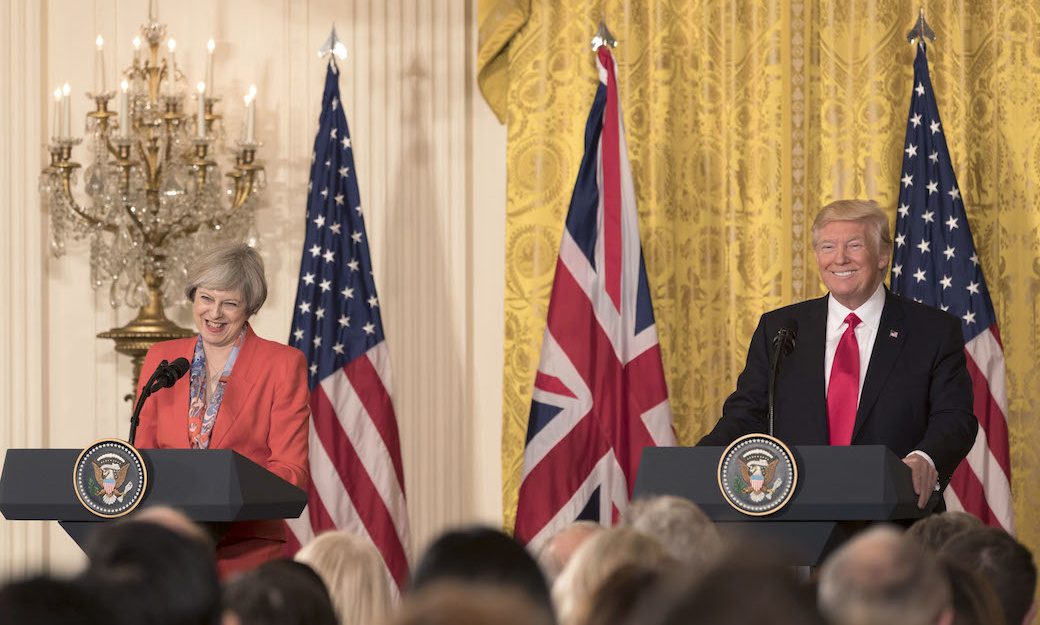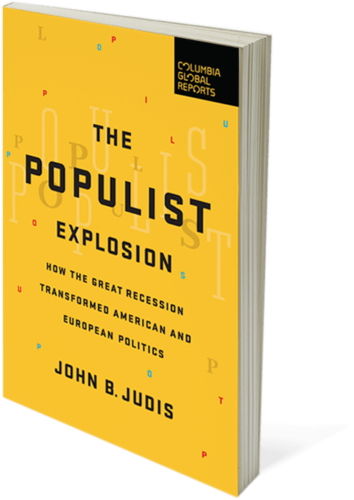Populists Are Now Going After Our Democratic Institutions

The lifecycle of the populist movement is well-known. In opposition, where they may whinge at leisure about corrupt elites and the bias media, populists flourish and multiply; but once they win power, they almost always suffer an identity crisis. It’s tough to lambaste the establishment if you are the establishment.
Just ask Syriza, the radical Greek populist coalition that took power in 2015 but now faces plummeting poll numbers. As an opposition party, they promised an end to the austerity imposed upon Greece by its Eurozone creditors; as a governing party, confronted by economic reality, they ended up extending austerity. In July 2015, a snap referendum on a stringent bailout deal—which, on Syriza’s recommendation, the voters duly rejected—helped to stymie the economic recovery. The populists then relented, accepting bailout terms that were worse, to the tune of 86 billion euros, than the original deal struck by establishment parties.
 Can we expect the same fate to befall populism here? Not necessarily. We are now entering a new and unfamiliar phase of the populist phenomenon. The breath-taking electoral victories of 2016 have been replaced by the turgid political compromises of 2017. Britain is still a member of the European Union; the United States is still waiting for The Wall. At this point, populists are supposed to grow bored and give up; but in America and the United Kingdom, populist politicians have neither crumbled nor been co-opted by the elite. They have instead found a new target to blame for their lack of progress: democratic institutions.
Can we expect the same fate to befall populism here? Not necessarily. We are now entering a new and unfamiliar phase of the populist phenomenon. The breath-taking electoral victories of 2016 have been replaced by the turgid political compromises of 2017. Britain is still a member of the European Union; the United States is still waiting for The Wall. At this point, populists are supposed to grow bored and give up; but in America and the United Kingdom, populist politicians have neither crumbled nor been co-opted by the elite. They have instead found a new target to blame for their lack of progress: democratic institutions.
The will of the people, populists claim, is immediately intuitable and therefore unimpeachable; the people know what they want and when they want it. This naturally makes delay seem suspicious—it is either attributable to the efforts of hidden political forces that are determined to frustrate public opinion, or to political institutions that demand agreement, compromise, and deliberation. Donald Trump, in particular, has little patience for any of these.
His first 100 days saw a wild torrent of executive orders and government hyperactivity, but it has since steadily slowed to a trickle of daily scandals and legislative paralysis. The repeal and replace of Obamacare flopped; NAFTA is still standing; there remains roughly 4,000 positions across the administration yet to fill. During the campaign, Trump promised a revolution in government during “my first hour in office.” He recently marked his first 200 days in the White House without a single, major legislative achievement. But rather than working with Washington, the President has simply found a scapegoat.
In late-August, Trump repeatedly demanded that the entire system of Senate checks and balances—in particular the cloture rule that requires at least 60 senators to vote down any bid to block legislation, a principle established for more than a hundred years—be dismantled. Never mind the proper scrutiny of power: the will of the American people was being needlessly frustrated. After the failed replacement of the Affordable Care Act, a predictable Twitter tirade followed: “Republican Senate must get rid of 60 vote NOW!” “Go to 51 votes NOW. IT’S TIME!” A refusal to cooperate was further evidence that the Senate was “just wasting time.”
This is why populists harbour such a special hatred for intermediate institutions: they slow down the exercise of power. This week, the President had to yield to a six-month delay on the abolition of DACA, the program that grants work permits to undocumented migrants who arrived in America as children. It was a key campaign promise. But now Congress will have plenty of time to alter or simply block it. Tellingly, Trump’s supporters and surrogates, such as the Iowa Republican Steve King, have already described the act of “delaying” as a devious bid to “push [for an] Amnesty.”
There are more selfish reasons for these complaints. Exhausted by the ceaseless scandals and the absence of any legislative accomplishments, even loyal Republicans are now impatient with the Trump administration. This is why the announcement on DACA is so arresting: the President, perhaps aware that immigration policy is the purview of the legislative branch, has decided to instrumentalize delay, to exploit the natural time-block of Congress in order to undermine Congress itself. In six-months, Trump can simply hold his hand up: it’s not my fault, it’s the system.
The President’s perpetual foil, Arizona Senator John McCain, targeted precisely these “impulsive” tendencies in a recent op-ed for The Washington Post. Trump could not treat Congress like “his subordinates.” “Our entire system of government,” he observed, “seldom works smoothly or speedily.” This is its virtue: steady deliberation prevents the sudden formation of impassioned, impetuous majorities who might then throw their support behind bad laws drafted in panic or haste. But for populists, this is precisely its vice: If the judgements of the people are always right, then why wait?
The demon of delay is also being exploited for political purposes across the Atlantic. The United Kingdom has just emerged from the third round of Brexit negotiations, and it is not going well. Issues that were supposed to have been resolved at this point—the Irish border, the European Health Insurance Card—are lingering.
The increasingly protracted, prolonged process has prompted the Prime Minister, Theresa May, to pore over the history books. In 1539, the Statute of Proclamations—sometimes described as the “Henry VIII clauses”—conferred upon the king the right to amend primary legislation without ever consulting Parliament. Next week, the government will adopt these powers when it forces through the Repeal Bill, the statutory instrument designed to translate thousands of European Union directives into British law, without parliamentary oversight.
In other words, this prerogative power—constitutionally invested in the monarch, but exercised by the Prime Minister—enables May to speed-up Brexit. British voters, after all, were led to believe that withdrawal from the European Union would take months, maybe weeks. And the prospect of further parliamentary wrangling will not only delay negotiations further—it might actually leave Britain in legal limbo after March 2019. The British government insists that behaving like Henry VIII is a simple time-saving device. It is also a staggering affront to the democratic institutions of the British state.
For almost eighteen months, the institutions vital to safeguarding the civic freedoms of western citizens have remained relatively robust in the face of executive onslaught and popular indignation. But if Trump and the Brexiteers can convince the electorate that it is their political institutions, and not their populist leaders, who are to blame for the dithering and the delays, then this stress-test may soon reach breaking-point.
Rhys Jones is an historian, writer and fellow of Sidney Sussex College, University of Cambridge. He tweets @rhyshistorian.

